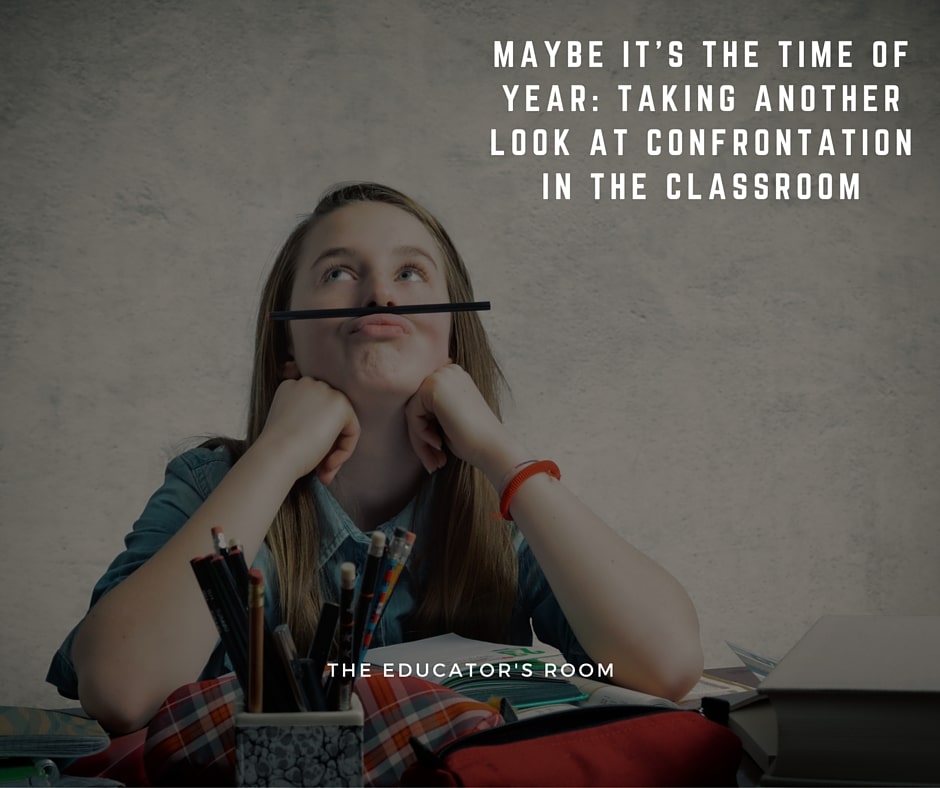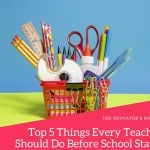It was just a lesson on folktales, really. We’ve been reading a variety of stories from around the world in my 8th grade English classroom – sometimes with partners or small groups, but yesterday I asked my students to tackle reading “Davy Crockett” alone. Their essential question was familiar at this point: “What do folktales tell us about the values and beliefs from the culture they originated in?” After a brief discussion to analyze an illustration of the subject, the students quietly read, took Cornell notes and wrote summaries using evidence from the text. Nothing new in this strategy. I wasn’t expecting a confrontation was about to erupt.
I began class with a whole group discussion using the questions from the prior day’s analysis. I pushed the kids beyond what I call ‘level 1’ questions – ones that can be answered without using evidence. I wanted them to think, to question, to analyze. I used the prompts “For example” and “In the story” to urge my students to connect with the text. I could see it was hard. I was coaching, encouraging, and we were getting there.
Until a girl began responding about dialect being an example of how the reader could identify the story’s setting, that is. She used the examples from the text to say the story was set in the South. Before I could nudge her in another direction, one of my students, M., called out, “That’s racist.”
The class grew silent. The momentum I had so carefully been nurturing was shattered.
“I don’t think you understand the definition of racist. What she is saying is about language, and is her opinion. She’s using the text as evidence,” I replied.
Realizing what he had said, he immediately became defensive. “I didn’t say racist, I said disrespectful,” he answered.
The class heard his comment. I heard his comment. In middle school, it is common for students to jump to using ‘racist’ and ‘sexist’ as their go-to answer without completely understanding what they are charging with those words.
“I heard racist, M.,” I responded, taking a deep breath. I didn’t really want to go this direction – not because the correct definition isn’t important, but because it was so far off topic that it didn’t warrant a mini-lesson. But I couldn’t just let it go – the word was hanging there like a storm cloud over our heads.
He clicked his tongue and rolled his eyes, crossing his arms. “I said disrespectful,” he challenged, his voice rising.
I diffused it. I asked him to step outside, as per his behavior contract, and went on with the class.
When I talked the situation over later with my vice principal, I said I thought I understood the real reason he responded that way. I shared that I knew the discussion was challenging, and was making kids feel vulnerable. I felt as if my line of questioning had been fair and had not put anyone on the spot, but that M. may have felt anxious because he didn’t understand. In the past, many times I have been able to get past his under-the-breath comments, and not let it disturb the flow of the lesson. But this time, it was too obvious. He took it too far, and I felt sad that he had shown me disrespect.
While agreeing with me, my VP reminded me that it’s the week before holiday break, and the underlying anxiety many students feel about their impending two weeks at home may leave them feeling angry. The kids may not all be excited about the family time, especially for a kid like M. who has a single mom who works long hours. He asked if we could do a restorative practices meeting, and I agreed. I like M., and wanted him to know how his outburst made me feel.
Astonishingly, M. showed up in my room before I could schedule the meeting. He was munching an apple as we talked. I started by saying how much I liked having him in my class, and I could see the beginnings of a smile form around the corners of his mouth. I told him how sad I was, and how yesterday hadn’t seemed like how things usually went in my class. After a few minutes of talking, I could see him relax. I felt that he was hearing me, and that he knew I cared.
We agreed that if he ever felt anxious in my class again, all he had to do was ask if he could take a walk. And I could also ask him the same, if I felt his behavior was escalating. He smiled, got up, and tossed his apple core in the trash can. We locked eyes for a minute, and we understood that maybe it’s just the time of year, and that things would be OK.





